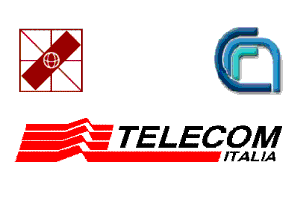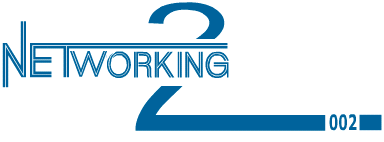Assets Inventory and Monitoring in a Networked World
|
|
|
|
|
sponsored
by
|
|
|
|
|
|
|
|
|
|
|
|
|
Assets Inventory and Monitoring in
a Networked World
monday, may 20, 9.00-12.45
In today's dynamic information society, organizations critically depend on the underlying computing infrastructure. Tracking computing devices as assets and their usage helps in the provision and maintenance of an efficient, optimized service. A precise understanding of the operational infrastructure and its users also plays a key role during the negotiation of outsourcing contracts and for planning mergers and acquisitions. Building an accurate inventory of computing assets is especially difficult in unknown heterogeneous systems and networking environments without prior device instrumentation. User mobility and mobile, not-always-signed-on, computing devices add to the challenge. We propose to complement basic network-based discovery techniques with the combined log information from network and application servers to compute an aggregate picture of assets, and to categorize their usage with data-mining techniques according to detected communication patterns.
This tutorial is divided into two parts:
1. Network-based asset discovery and tracking. Passive network mapping enables the discovery and identification of network assets without generating any kind of traffic. Active mapping techniques explore the network from a starting point using repetitive algorithms, interacting with network services and target systems to discover hosts as well as their operating systems and services. The more we know, the more we can find out. The accurate tracking of mobile devices is a prerequisite for further asset analysis. However, the automatic discovery of assets within an administrative domain is quite challenging, as networks become increasingly heterogeneous and security shields make it difficult to perform an exhaustive network discovery. We will exemplify discovery and reporting techniques using a small selection of applications developed and used by the authors.
2. Enterprise asset management techniques. Network discovery, physical inventories and traditional asset management systems are positioned in the scope of corporate asset life-cycle processes. Device instrumentation furthers the accuracy and automation of asset tracking. Management models include WBEM and WMI. Demographic questionnaires and various daemons confirm this data and connect to enterprise servers. Further sources of data are enterprise server logs. The mining of all this heterogeneous data represents an enormous challenge, but asset and usage categorizing and warehousing may eventually allow questions to be answered about the cost, utility, and risk associated with individual assets.
|
Luca Deri NETikos S.p.A. |
Dieter Gantenbein IBM Zurich Research Laboratory |
 Luca
Deri is currently sharing his time between NETikos S.p.A., where he
develops mobile applications, and the University of Pisa, where he has
been appointed as lecturer. He received his Ph.D. in Computer Science
with a thesis on Software Components from the University of Berne, Switzerland,
in 1997. He previously worked as research scientist at the IBM Zurich
Research Laboratory, and as research fellow at the University College
of London. His professional interests include network management and security.
His home page is http://luca.ntop.org/.
Luca
Deri is currently sharing his time between NETikos S.p.A., where he
develops mobile applications, and the University of Pisa, where he has
been appointed as lecturer. He received his Ph.D. in Computer Science
with a thesis on Software Components from the University of Berne, Switzerland,
in 1997. He previously worked as research scientist at the IBM Zurich
Research Laboratory, and as research fellow at the University College
of London. His professional interests include network management and security.
His home page is http://luca.ntop.org/.

Dieter Gantenbein is a research staff member at the IBM Zurich Research Laboratory. In 1983 he received the M.S. degree in Computer Science from Rutgers University, New Brunswick, NJ, and joined the IBM Zurich Research Laboratory. He implemented various OSI communication protocols, and has contributed to international projects groups such as RACE and the ACTS MISA Consortium. He contributed to the IBM TMN and NWAYS ATM switch products. Since 1999 he is project leader for the IDD Intelligent Due Diligence tool used by IGS for network-based asset discovery and tracking services.

